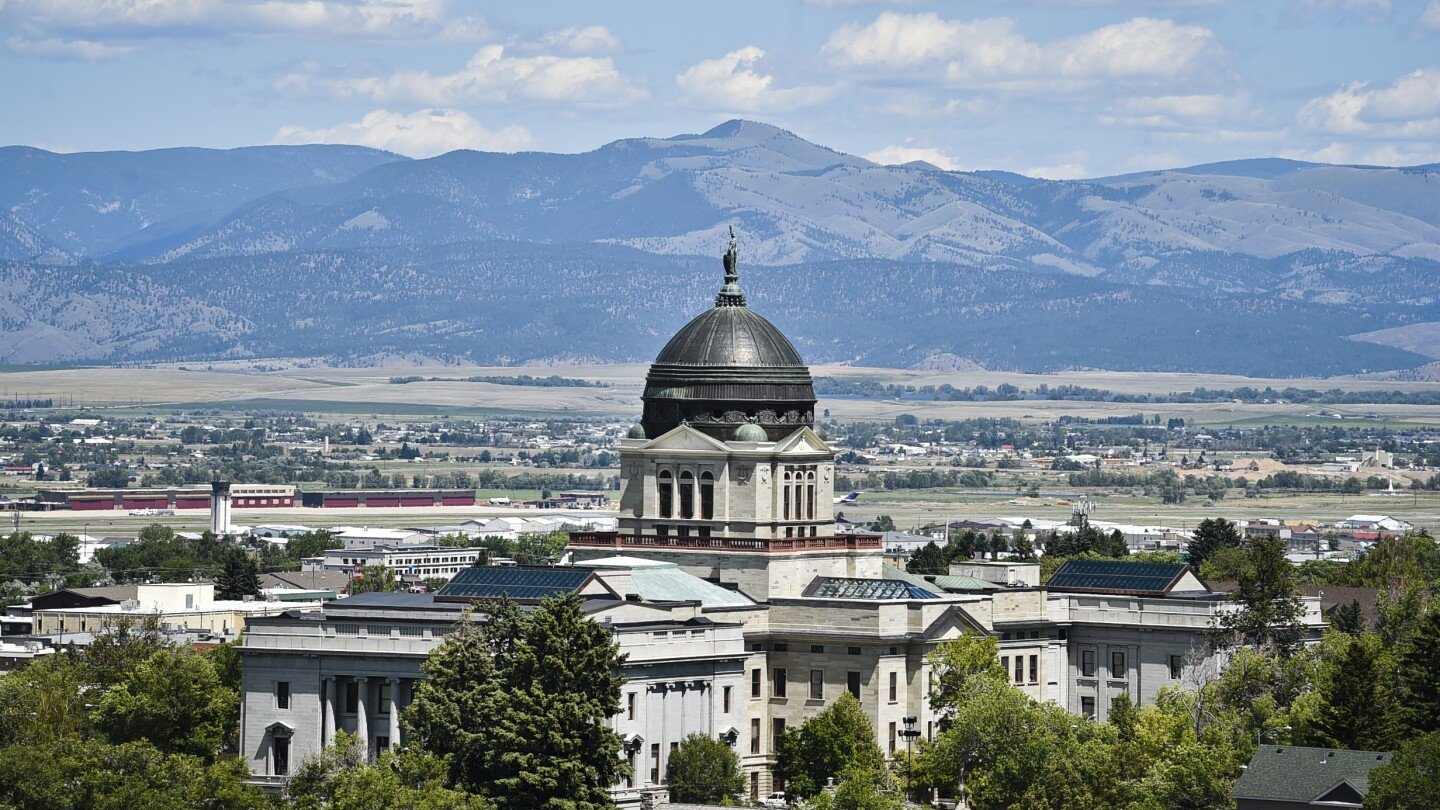Montana’s Supreme Court ruled Wednesday that minors don’t need their parents’ permission to get an abortion in the state – agreeing with a lower court ruling that found the parental consent law violates the privacy clause in the state constitution.
“We conclude that minors, like adults, have a fundamental right to privacy, which includes procreative autonomy and making medical decisions affecting his or her bodily integrity and health in partnership with a chosen health care provider free from governmental interest,” Justice Laurie McKinnon wrote in the unanimous opinion.
The ruling comes as an initiative to ask voters if they want to protect the right to a pre-viability abortion in the state constitution is expected to be on the Montana ballot in November. County officials have verified enough signatures to qualify the issue for the ballot, supporters have said. The Secretary of State’s Office has to certify the general election ballots by Aug. 22.



The article says the state supreme court ruled it violated the state constitution. SCOTUS has no business interpreting state constitutions, only the federal constitution.
I think the federal constitution supersedes state constitutions, though.
Ah - it does! I had to look it up. It’s called the Supremacy Clause (Wikipedia). It’s not uniformly applied because many states aren’t going to bother with enforcing federal laws they disagree with. (States with legal weed, for instance.) But the federal government does have the right to poke holes in state constitutions if they deem it necessary and want to.
Edit: While I could still see SCOTUS being malevolent using a thin pretext, it appears this case cannot be taken by SCOTUS, because (as far as I can tell), it doesn’t meet the requirements for SCOTUS to take it.
I could see SCOTUS taking the case, ruling horribly, the rest of the federal government not taking up enforcement, but Montana lawmakers running amok with their newfound ability to step on desperate teenagers, because SCOTUS said they could.The supremacy clause would be relevant if abortion were outlawed federally, but that hasn’t happened, so there is no conflict.
A fine reasoning, if that were in any way the discussion at hand.
The legality or illegality of abortion is immaterial here. The case in question is about privacy, but specifically we’re talking about whether the Federal government can interpret the Montana state constitution (they can).
My “I could see…” was a reference to a reinterpretation of laws/precedent/whatever by the SCOTUS to overrule the state Supreme Court decision. We’ve seen a number of questionable rulings from this SCOTUS, and I would not doubt they would find any justification to legislate from the bench on what seems to be a pet cause of the majority.
SCOTUS doesn’t interpret the state constitution. The state courts do that. SCOTUS then takes the state interpretation as fact and judges if it violates the supremacy clause of the US constitution.
Yeah but state constitutions can grant additional rights (versus state law and state institutions) in addition to those guaranteed by the federal constitution. That is what is going on here to my understanding, hard for SCOTUS to rule that the state constitution cannot do that.
That’s a valid point for ‘normal’ times. But I don’t think these are normal times. I also don’t think the SCOTUS would approach their rulings in a manner that respects anything other than the agenda of the majority. I earnestly believe that they would dispense with any sort of legal precedent or sense of decorum to enforce their will.
If SCOTUS did that without a direct conflict in the state and federal documents then they would be ruling that state constitutions and courts are now moot.
I wouldn’t put it past them to pull something like that, but the bit about conflict between the constitutions (plus another commenter’s input) caused me to question on what grounds a case can be appealed from a state Supreme Court to SCOTUS, and it looks like there isn’t a path for that here.
SCOTUS still can overrule a state constitution, but they can’t pick up this case, as far as I can tell. There just doesn’t seem to be a path that leads to them. I’ll amend my comment.
Yeah, but that is only if the two constitutions contradict each other.
If they don’t, then both are go.
Ah, you’re right. I did a bit more digging, and in it appears that unless the case involved contradictory interpretations of the state vs U.S. constitution at each level of it’s trial progression, the case cannot be appealed to SCOTUS.
My supposition at the end of my previous comment wouldn’t come to fruition - at least not as the result of an appeal to this case.
I’ll amend my comment.
The Supremacy Clause won’t apply in this case. Repealing Roe means the federal government doesn’t protect medical privacy in the case of abortions. It doesn’t mean they restrict it.
I was editing my comment as you were typing yours. But - yeah.
The supremacy clause wouldn’t even have the chance to be applied, because the case wouldn’t ever leave the state.
Purely hypothetically now, I was not so much thinking of Roe or the reasons used to undo that decision being applied here, but just any spurious legal justification they could come up with.